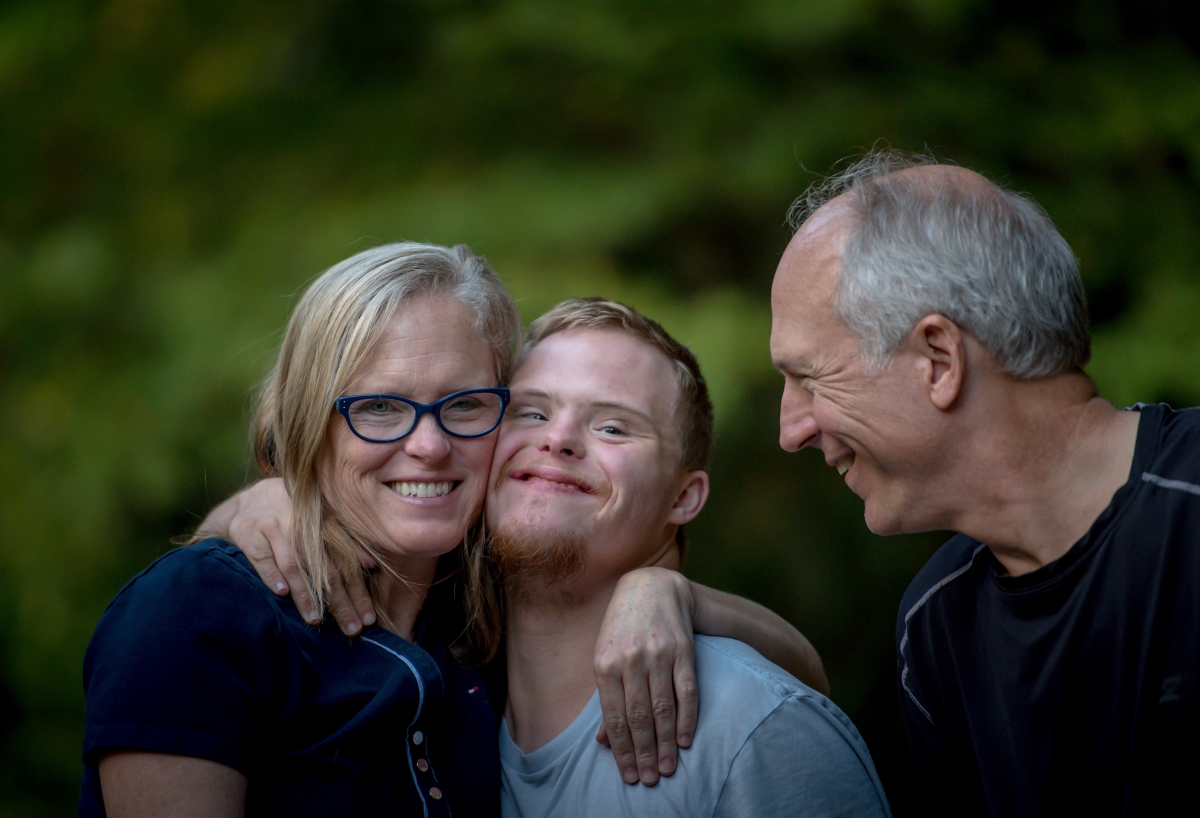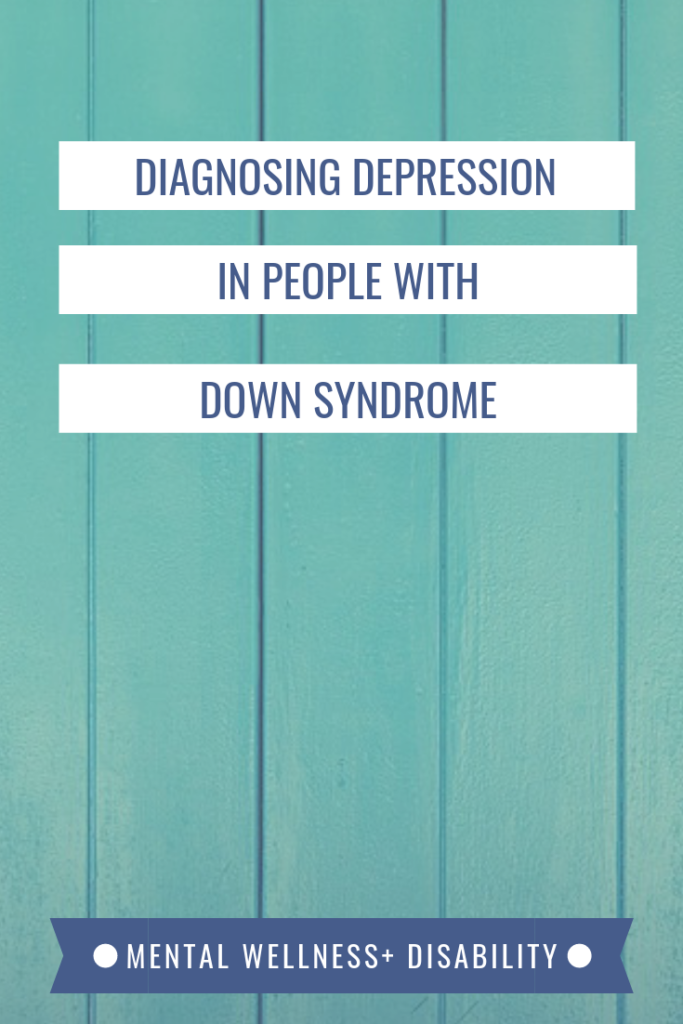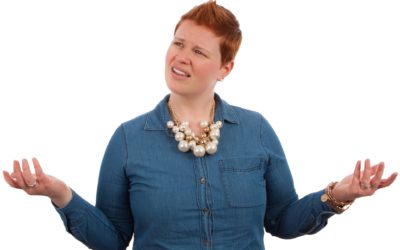Why Diagnosing Depression in People with Down Syndrome is difficult
Maybe more than any other disorder, the DSM criteria for Depression is almost entirely based on self-report. A person usually describes feeling worthless, hopeless, crying more. They say they feel ‘empty’, even when doing things that used to bring them joy. It is clear that they have Depression.
But people with Down syndrome may have difficulty expressing their mood or other internal sensations. They may struggle to make valuation statements like ‘more crying’ and ‘less sleeping’. For these reasons, it can be difficult for a clinician to diagnose Depression in people with Down syndrome.
I often meet with counseling clients who have Down syndrome who are demonstrating depressive symptoms. They maybe aren’t able to articulate their feelings verbally. But their behavioral symptoms are enough to warrant evaluation for Depression. Yet, very rarely is Depression considered a possible explanation for how their behavior has changed.
The common signs of Depression in people with Down syndrome
Self-report can be difficult and inconsistent for people with Down syndrome. Because of this, it is critical that caregivers notice behavioral changes and other outward signs of an internal mood disorder.
The common signs of Depression in people with Down syndrome:
- Apathy (for things, activities, or people that were previously cared about)
- Increased self-talk
- Changes in appetite (and related weight gain or loss)
- Changes in sleep patterns
- Self-led-withdrawal/isolation
- Loss of previously mastered skills
- Psychomotor retardation – a general, physical ‘slowing down’
- Hallucinations
- Fearfulness
- Increased agitation
- Increases in previously demonstrated ritual behaviors
Ruling out Other possible Causes of Symptoms when Diagnosing Depression in people with Down Syndrome
The trouble is that this list of symptoms could indicate a number of other things going on.
To be really vigilant, it’s important to rule out other possible causes of these changes in behavior.
Medical issues and other conditions may be causing a mood disorder, or may be happening at the same time as Depression in people with Down syndrome. To rule them out is a fairly simple but important process.
Some of the more common medical conditions with similar symptoms to Depression are:
Hypothyroidism – a primary care doctor or psychiatrist can order a blood test to check for this. The treatment for hypothyroidism is usually uncomplicated. Treatment involves taking a medication to restore the body’s thyroid hormonal levels.
Vitamin B12 deficiency – like hypothyroidism, a simple blood test determines if this deficiency is present. Treatment may include dietary changes, medications, or injections.
Sleep disorders – Primary care doctors sleep disorder specialists can evaluate for sleep disorders. A doctor may request a sleep study to rule out obstructive sleep apnea or other complications related to sleep.
Bowel function disorders – Your doctor should rule out constipation or other bowel difficulties. They may consult with a dietician to determine if there are any dietary changes recommended.
Alzheimer’s dementia: An important rule out
Alzheimer’s dementia can be especially difficult to distinguish from Depression in people with Down syndrome.
Many of the behavioral changes/other symptoms will be similar (loss of adaptive skills, changes in sleep and appetite, weight loss or gain, memory loss, apathy, agitation and aggressiveness).
Further complicating accurate diagnosis, people with Down syndrome who are over 50 years old are much more likely to develop Alzheimer’s dementia than people the same age who don’t have Down syndrome.
Of course, there is no specific test that can confirm with 100% accuracy if a person has Alzheimer’s.
In general, it’s important to pay close attention to a person’s ongoing symptoms. Depression usually shows an up-and-down pattern of decline, which will show improvement with treatment. Research isn’t conclusive as to whether people with Down syndrome ever return to their pre-Depression level of functioning, but it’s clear that they can come pretty close.
By contrast, if a person has Alzheimer’s, they may have a similar up and down fluctuation of symptoms in the beginning stages, but over time it will become clear that their declines are increasing, and that they’re not regaining previous skills, interests, etc.
Ruling out other psychiatric conditions when Diagnosing Depression in People with Down Syndrome
Various studies have found different results, but it seems that people with Down syndrome may have more hallucinatory self-talk than the average person with Depression. Even for experienced clinicians, this can be easily misdiagnosed as a psychotic disorder.
In my practice I have seen a number of clients with Down syndrome who previous counselors have diagnosed with psychotic disorders. As I’ve gotten to know them and understand their struggles and behavior patterns, in all cases what they really needed help with was Depression.
What’s really critical is to not jump too quickly to diagnosing someone as having a psychotic disorder unless it’s truly clear that Depression is not the underlying source of the behavioral changes.
This is especially important when medication is the recommended treatment. This matters because antidepressants typically have a greater benefit to risk ratio than antipsychotic medications.
If it is Depression
If other possible medical causes for behavior changes have been ruled out by a doctor, it may be Depression that the person is struggling with. Unlike those other medical conditions, unfortunately, it can be difficult to find the right treatment.
There are few counselors who consider themselves knowledgeable about how best to interact with clients with disabilities like Down syndrome. Many may refer you to other clinicians because they don’t believe that they could be of real help to someone with Down syndrome.
If you are struggling to find a therapist who understands how Depression and other mental health disorders affect people with Down syndrome, I invite you to contact me to discuss your unique needs and if I might be able to help.
Keep reading
Other posts you may be interested in
How to Know if Someone is a Real Friend. A Quiz for Teens and Adults with IDD.
In my counseling practice, I offer mental health counseling for teens and adults with IDD. Many of my clients who have Down syndrome, Cerebral palsy, and other disabilities have lots of meaningful friendships in their lives. But sometimes, they ask “how can I know if someone is a real friend?” Maybe you have a friend […]












